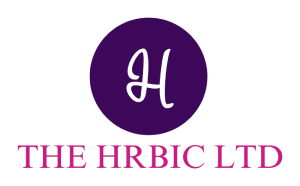
Standing out during an interview increases your chances of getting a job offer from your prospective company. Understanding the different techniques employers look for can help you showcase your skills, work experience and why you’re the right fit for the job.
Here are some tips to help you stand out in a job interview:
- Research the Company: Researching your prospective company helps you answer questions about the company you’re interviewing with. Review the organization’s mission statement, history and target audience to give yourself more confidence to provide a clear and concise response. Tailor your responses to show how your skills align with their goals.
- Understand the Role: Study the job description and understand the key responsibilities and requirements. Be prepared to discuss how your experience matches the role.
- Arrive early for your interview: Arrive early to compose yourself before walking into the building. Listen to music and practice proper breathing techniques to help you relax and improve your mindset. Read over your notes, questions and answers you’ll present to the interviewer. Use your notes to formulate your questions and responses to the interviewer. This approach helps you showcase your experience and can increase your chances of getting hired.
- Practice Your Elevator Pitch: Prepare a concise and engaging summary of your skills, experience, and what you can bring to the company. This can be useful for introducing yourself.
- Show Enthusiasm: Demonstrate genuine interest in the company and the role. Ask thoughtful questions about the company culture, team dynamics, and potential for growth.
- Highlight Achievements: Delineate the results you’ve produced for the companies you’ve worked for. Discuss how your strengths lead to your previous accomplishments. Emphasize the approach you’ll take to replicate your accomplishments and what you can do to produce better results for the company. Use specific examples from your previous roles to showcase your accomplishments and how you’ve added value. Use the STAR (Situation, Task, Action, Result) method to structure your answers.
- Be Yourself: Authenticity is important. While you want to present your best self, it’s essential to be genuine and let your personality shine through.
- Adaptability: Highlight your ability to adapt to new challenges and learn quickly. Provide examples of how you’ve successfully tackled unfamiliar situations.
- Problem-Solving: Be prepared to discuss how you approach challenges and solve problems. Showcase your critical thinking skills.
- Soft Skills: Emphasize soft skills like communication, teamwork, problem-solving, and leadership. Use anecdotes that illustrate these qualities in action.
- Dress Appropriately: Dress professionally and appropriately for the company’s culture. When in doubt, it’s better to be slightly overdressed than underdressed.
- Body Language: Give the interviewer your undivided attention by sitting up straight and making eye contact. Be aware of the interviewer’s cues if eye contact is not preferred. These signals show that you’re engaged with the interviewer and you’re intrigued by the information they’re providing to you. Take deep breaths to remain calm and focused on the interviewer when answering their questions. Offer a firm handshake, and sit up straight. Positive body language can convey confidence and professionalism.
- Ask unique questions: Ask pointed questions to the interviewer to help you determine if it’s the right position for you. Companies like answering questions because asking them shows your inclination to understand key details about the position. Stick to asking questions associated with job responsibilities and qualifications. Bring a list of questions to ask the interviewers and check to see if they want to know more about your skills and experience. This shows your interest and engagement.
- Follow-Up: After the interview, send a thank-you email expressing your gratitude for the opportunity and reaffirming your interest in the position.
- Learn from Rejections: If you don’t get the job, don’t be discouraged. Request feedback if possible and use it to improve your interview skills for the next opportunity.
Remember, each interview is a learning experience. Even if you don’t get the job, the skills and insights gained from the interview process can be valuable for future endeavors. Good luck!
